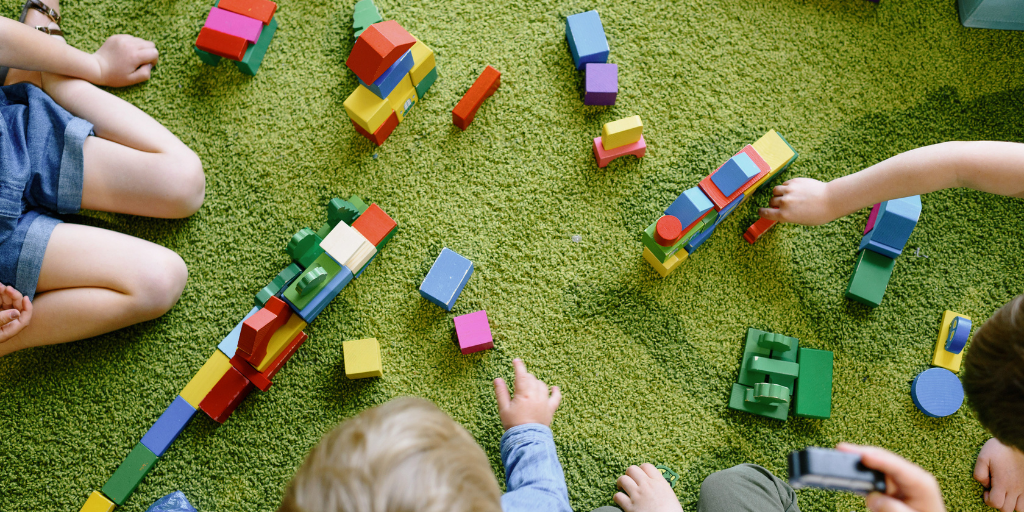Your local ELC explains how playtime impacts child development, and what healthy playtime looks like.
When children play, they are laying the foundations for all future learning. Playtime is absolutely crucial for children, developing everything from physical to social to creative skills, and even problem-solving and decision-making processes. Below, we’ll explore how playtime fosters early development, and how to ensure playtime properly stimulates a child’s development.
Types of Play and Their Roles in Child Development
Social, creative, and physical play develops children’s skills efficiently because it’s a fun way of having children engage with problems in a safe environment.
Another way to understand play is by structured vs. free play. Infant language expert Dr. Roberta Golinkoff gives the example of sports games—these are a kind of structured play, where children are playing but the rules are not in children’s control. Free play puts the control in the child’s hands and is incredibly important in fostering problem-solving, decision-making, social, and creative skills.
Benefits of Playtime in Child Development
Perhaps the most obvious way playtime has a role in child development is in social play. In Parten’s 6 stages of social play, we can see how as children play with others more their social skills become more complex and advanced, preparing them for the interpersonal situations of grown-up life. Another important way playtime fosters children’s growth is through physical play strengthening muscles, improving dexterity, and developing bodily awareness. It also burns calories, an important aspect of maintaining physical health.
In structured play, children learn about how to implement rules and play fairly by learning from an adult. It’s best for children kindy age and older.
Free play provides a safe environment for children to experiment. This gives children a space where they can make the decisions, in turn developing their problem-solving and emotional regulation skills.
Tips for Maximising Playtime Benefits
Outdoor areas provide room for children to run around and engage with the world around them. It’s important to provide opportunities for children to play outside and with other children in order to encourage physical and social development.
Next is understanding that parents are the most important people in a child’s life. Parents talking with their children has positive effects on children’s language development and vocabulary. Factor in free play by allowing the child to guide the conversation.
Finally, make sure to balance structured and free play. Incorporating a structured activity at a regular time that engages with your child’s interests helps develop a routine that is essential for school readiness. But children also need plenty of free playtime, especially in early childhood. Providing different ways children can develop different skills during free playtime is essential—for example, having books for children to look at, paper and pencils for children to draw, an outdoor environment for children to explore and run around; toys for children to utilise their imagination with; and so on.
At your local ELC, we understand just how crucial play-based learning is in early childhood development. That’s why we make sure children get plenty of opportunities to explore every kind of play, so they can grow and flourish.
YOU MIGHT ALSO LIKE TO READ:
The Importance of Play to a Child’s Physical, Mental, and Social Development
We understand how important your child’s physical, mental, and social development is to you, it’s important to us as well. Your Local Early Learning Centre, explains how learning through play supports your child’s development in these key areas. – READ MORE






